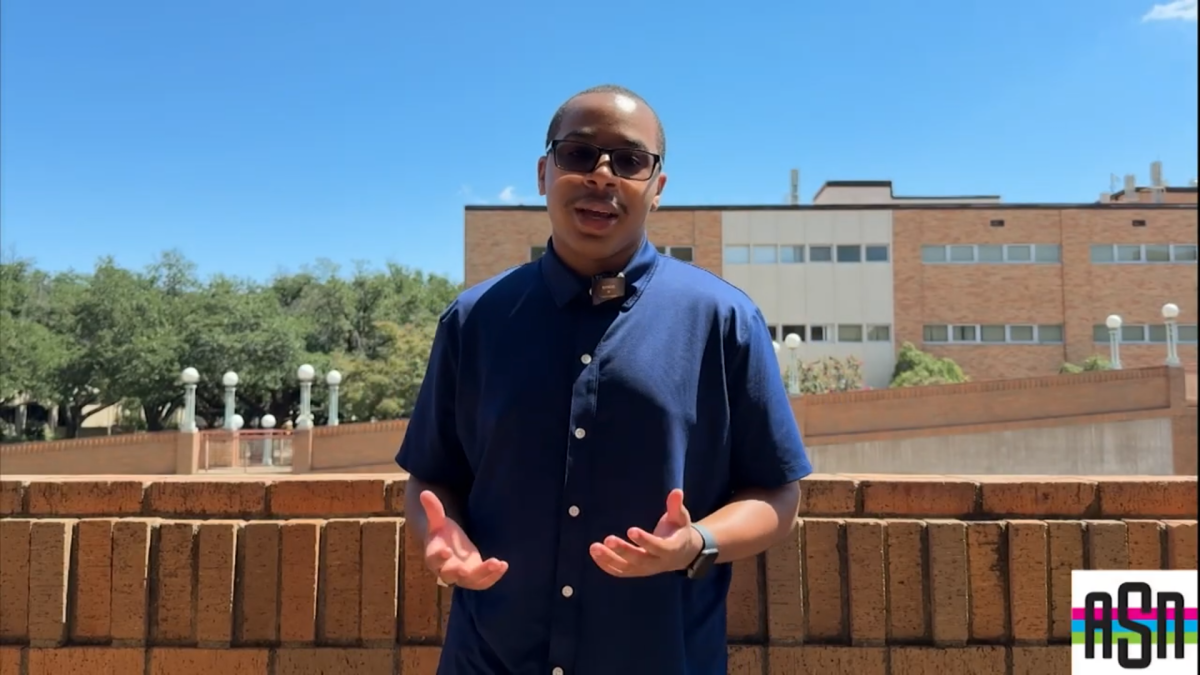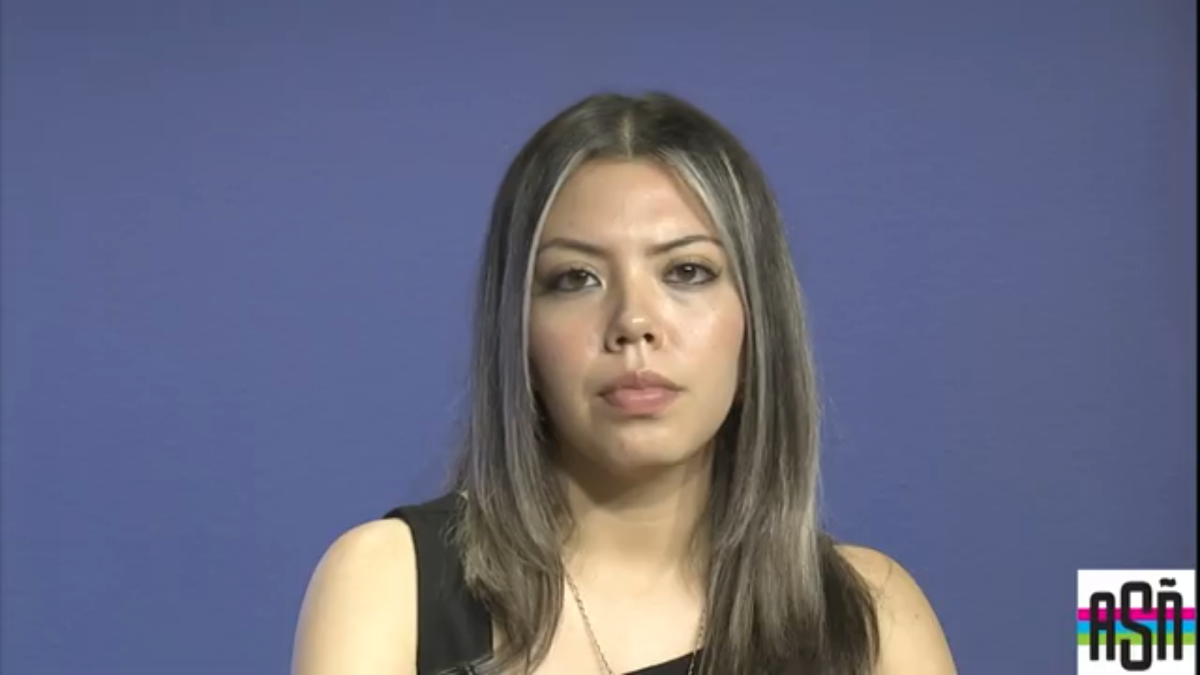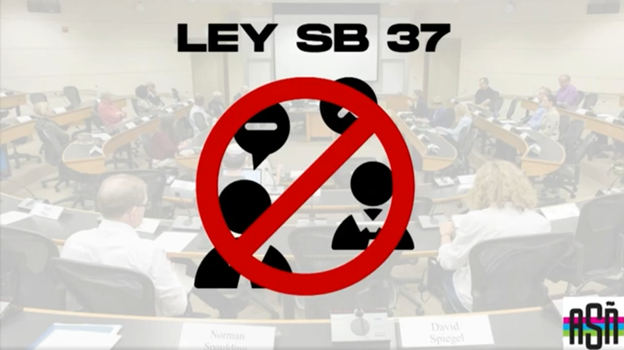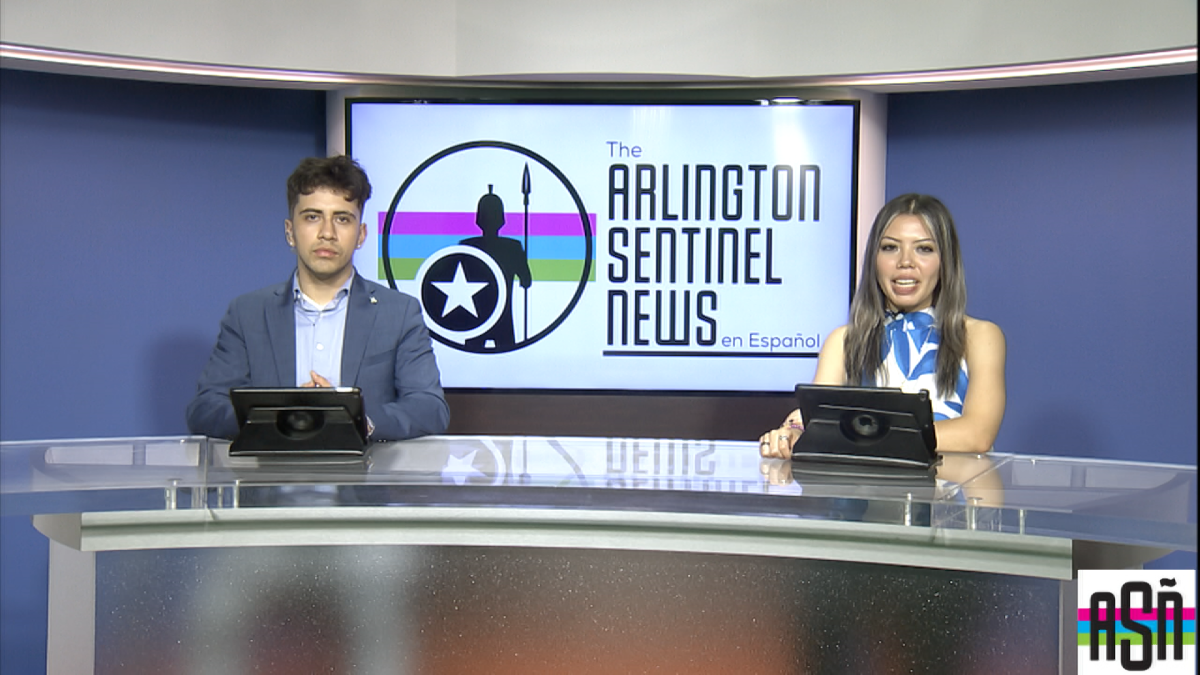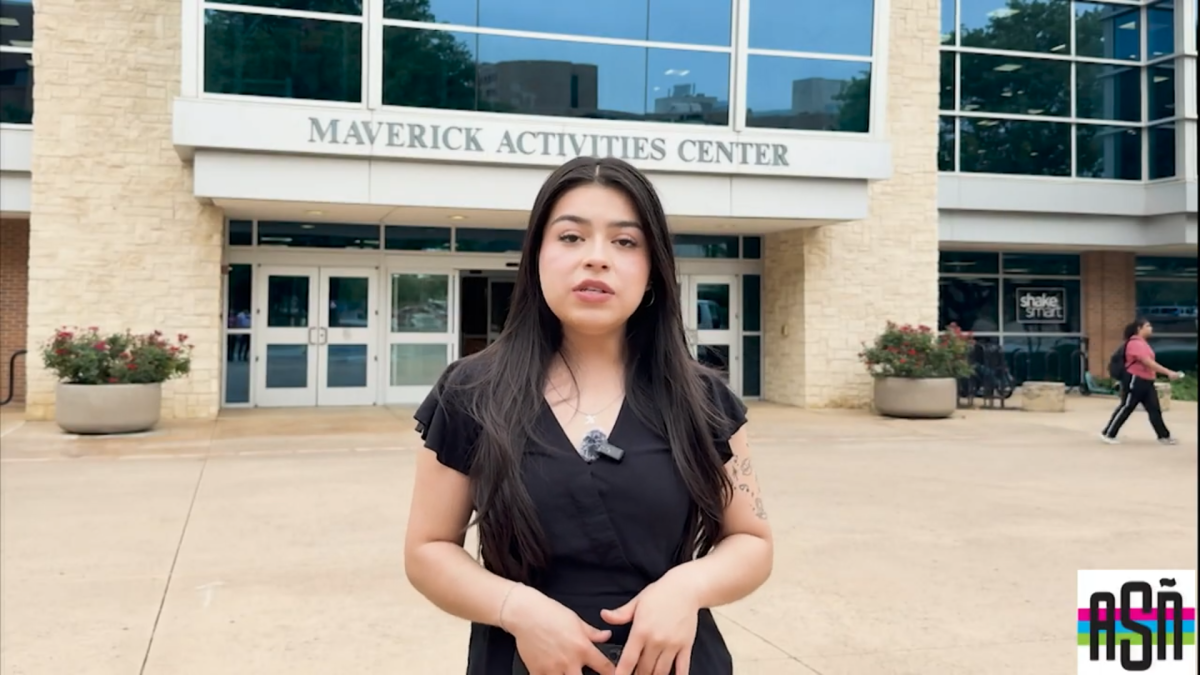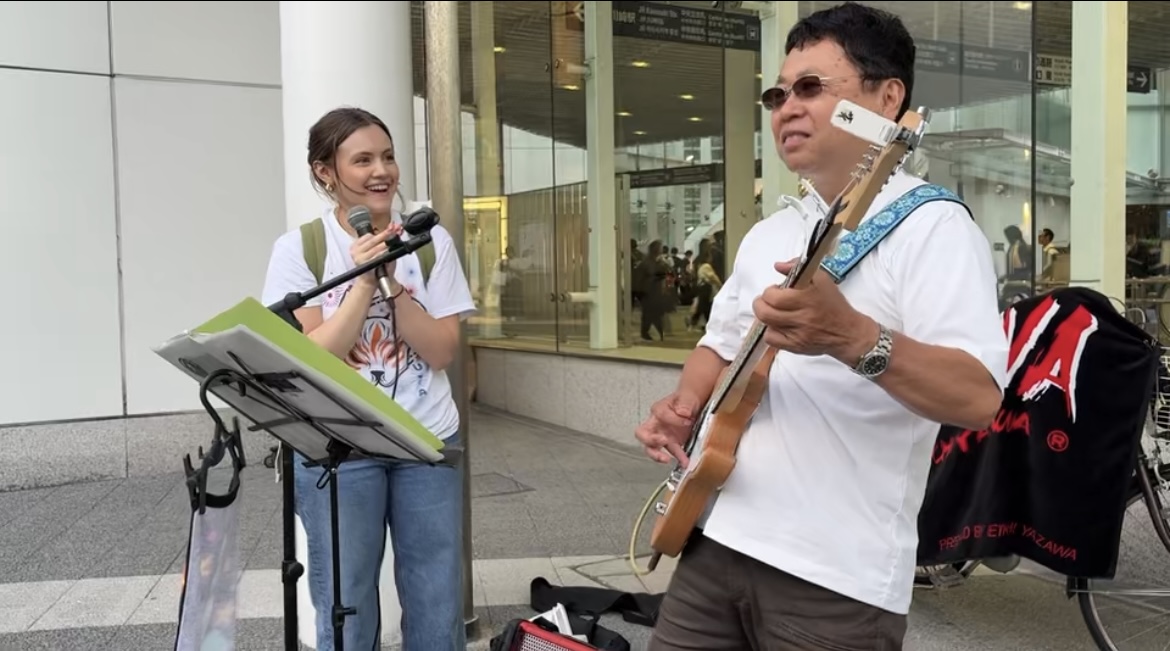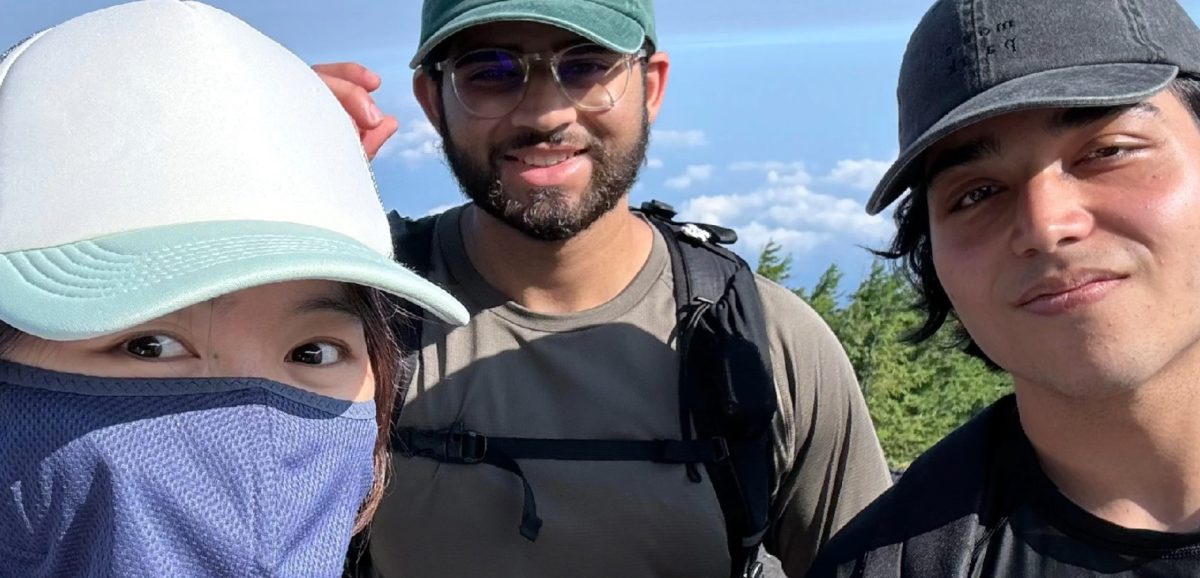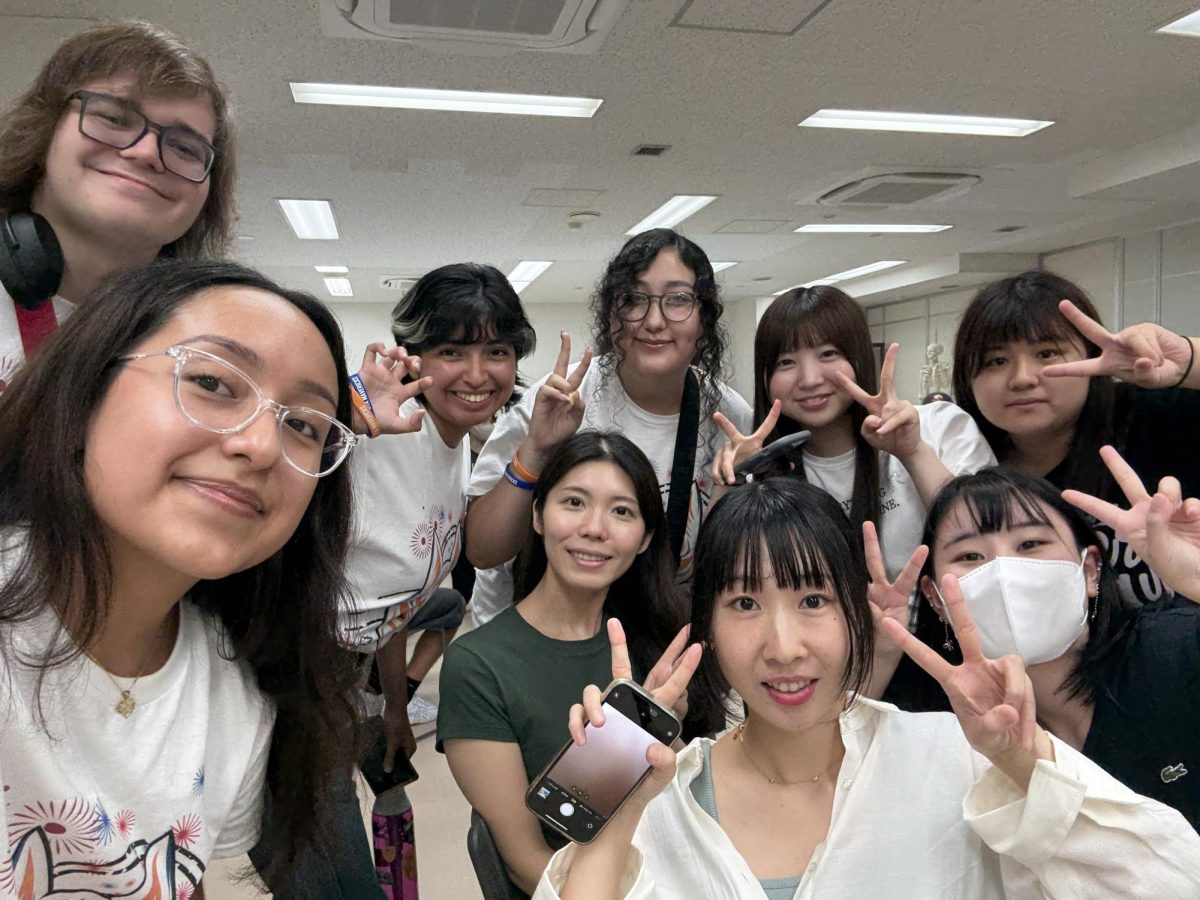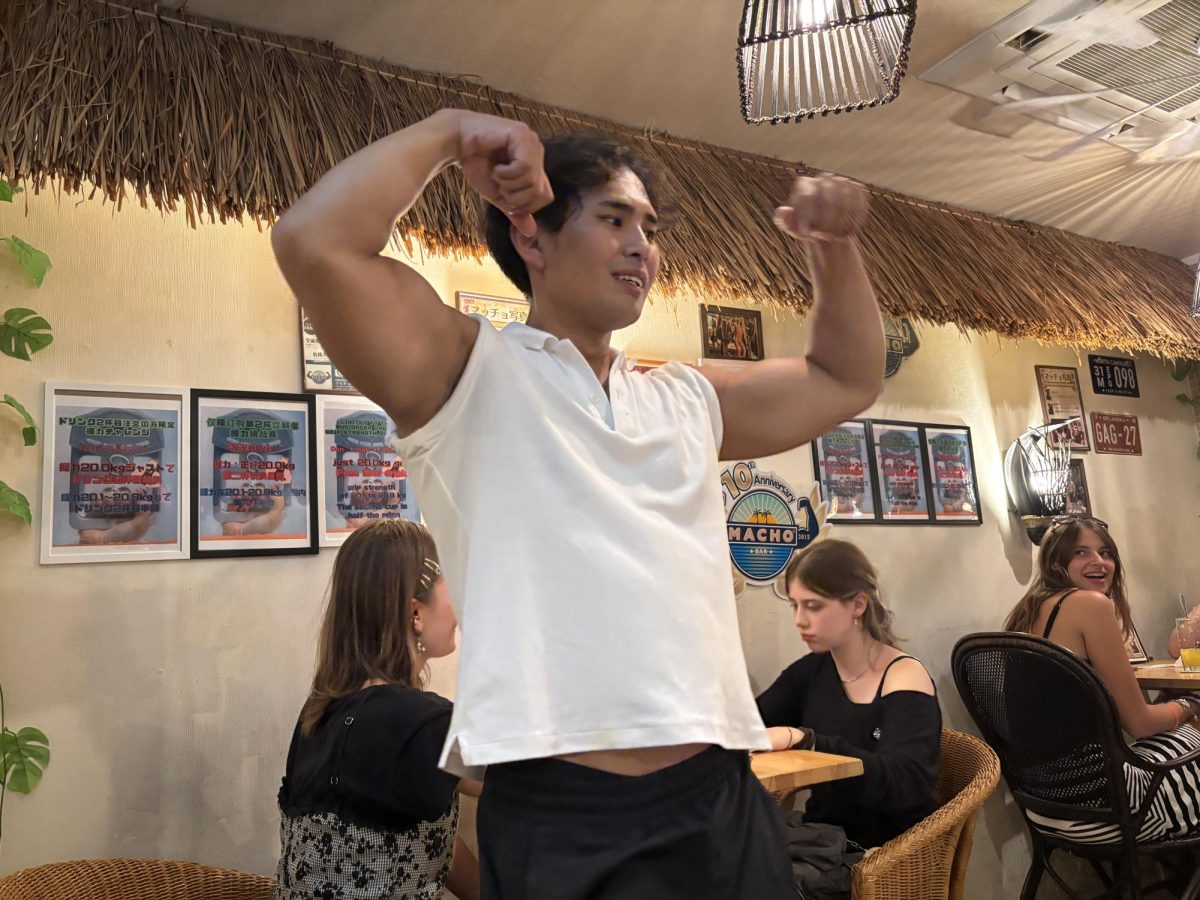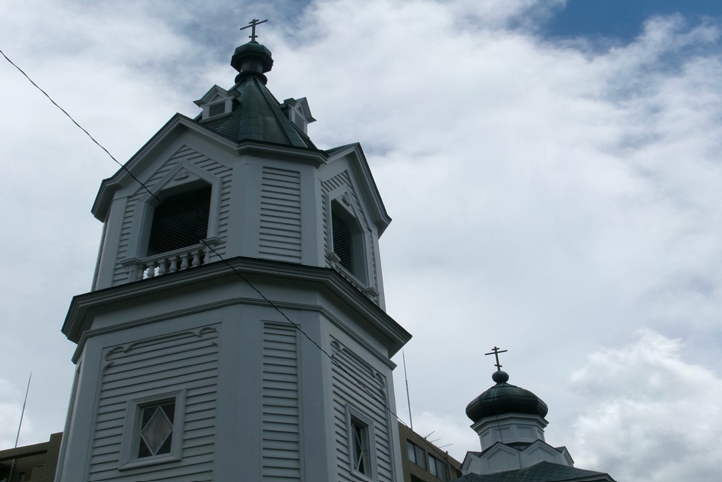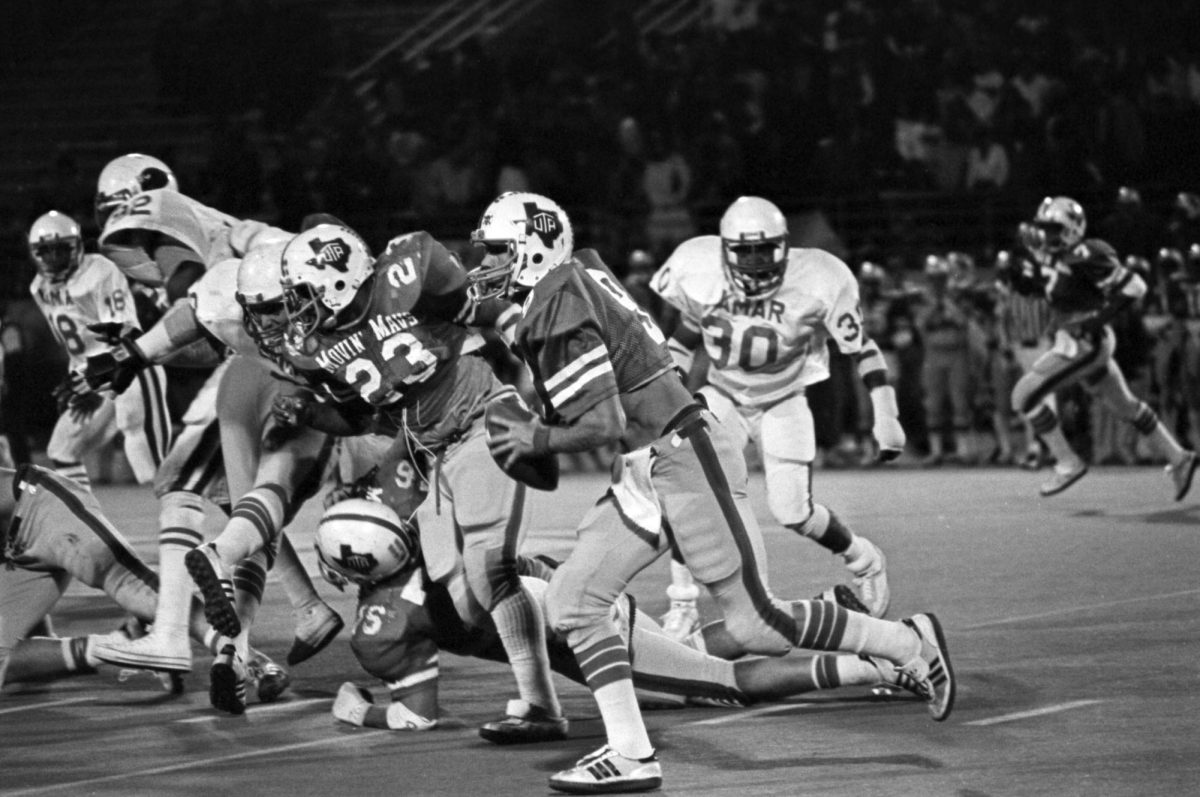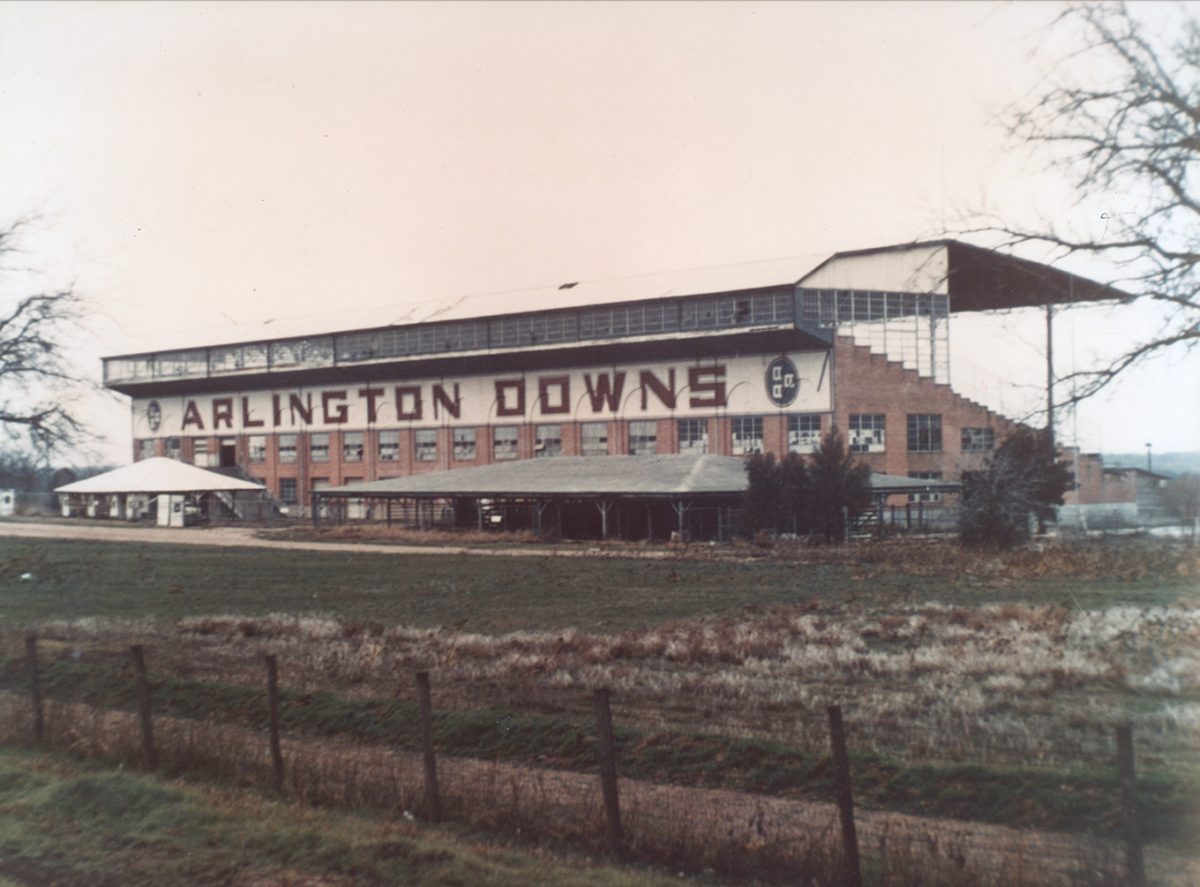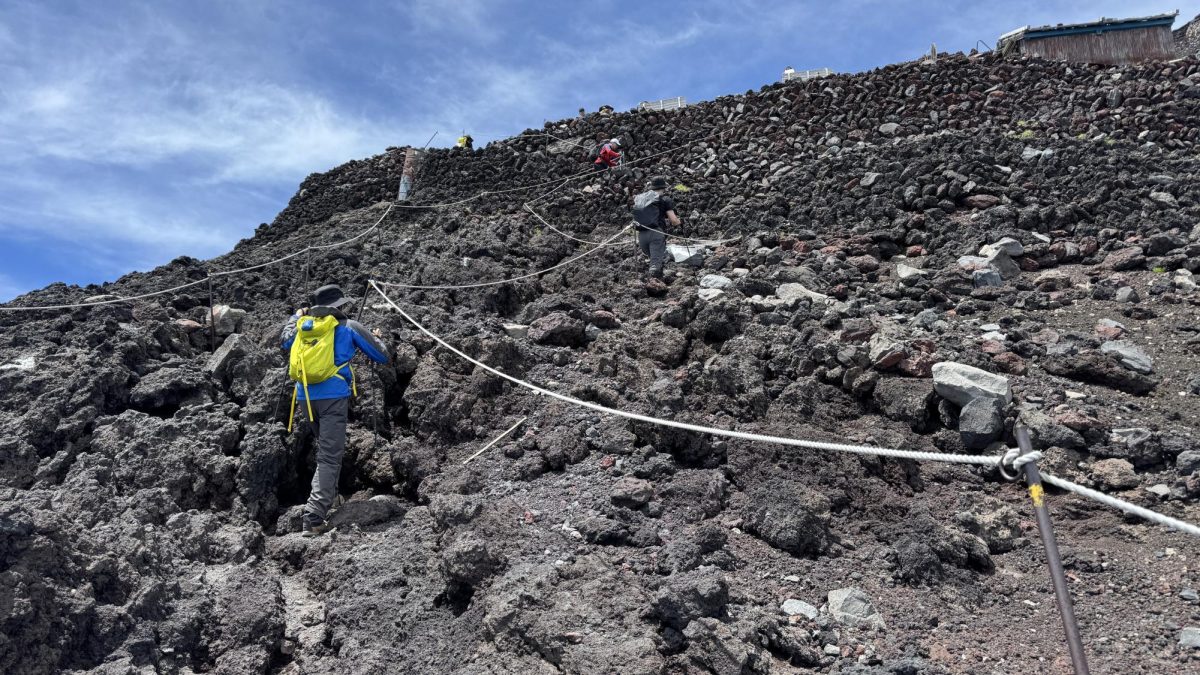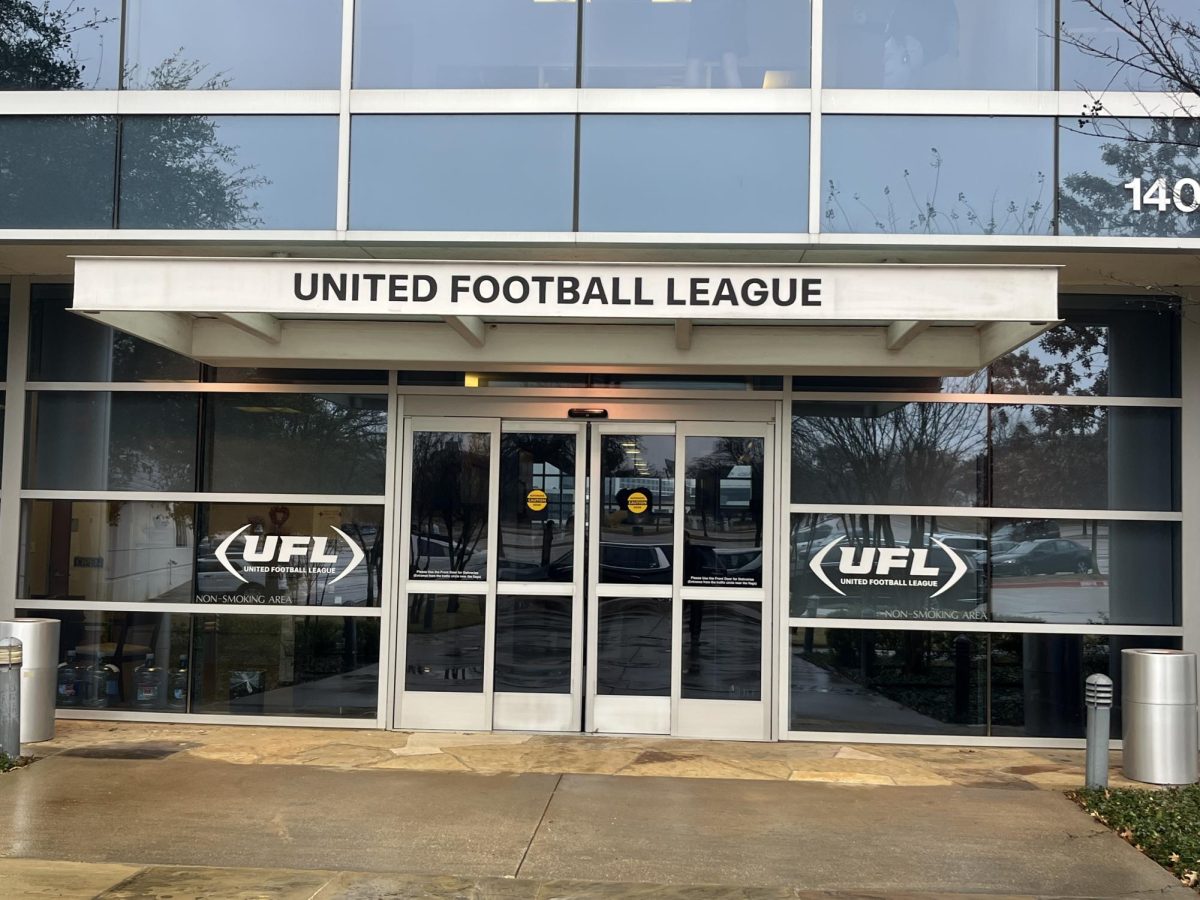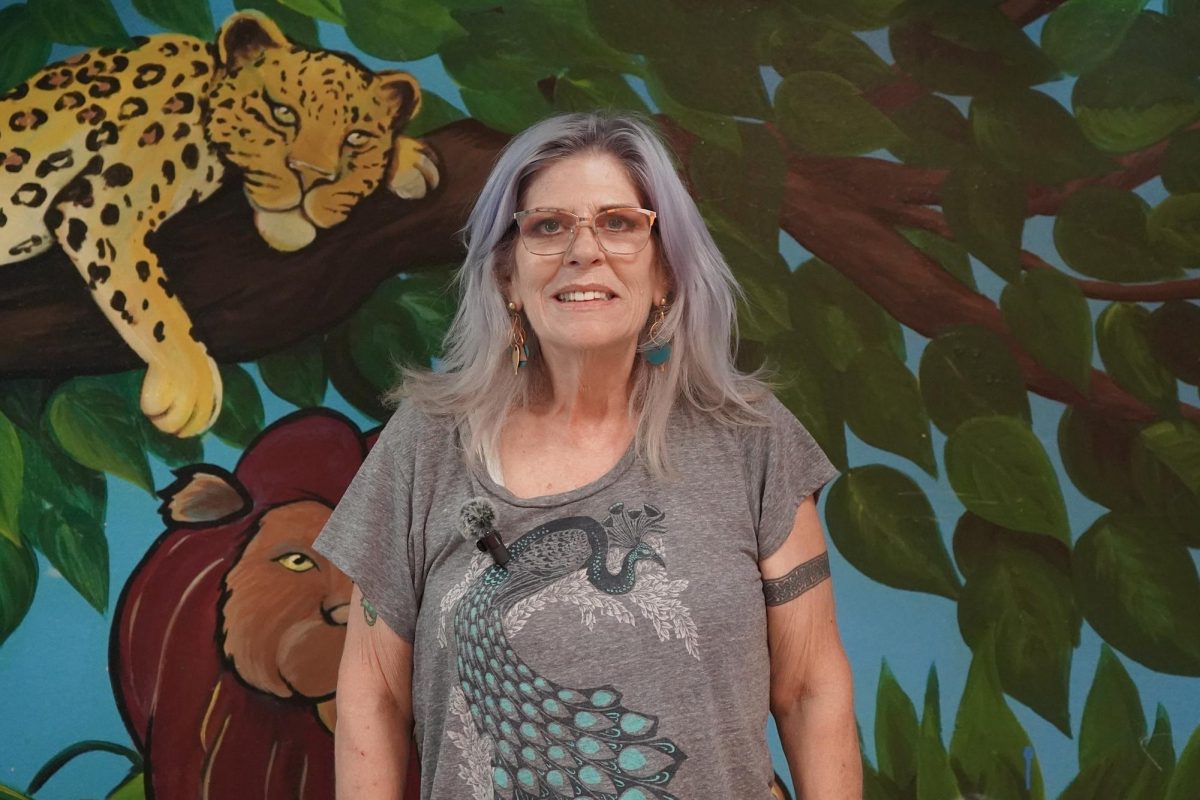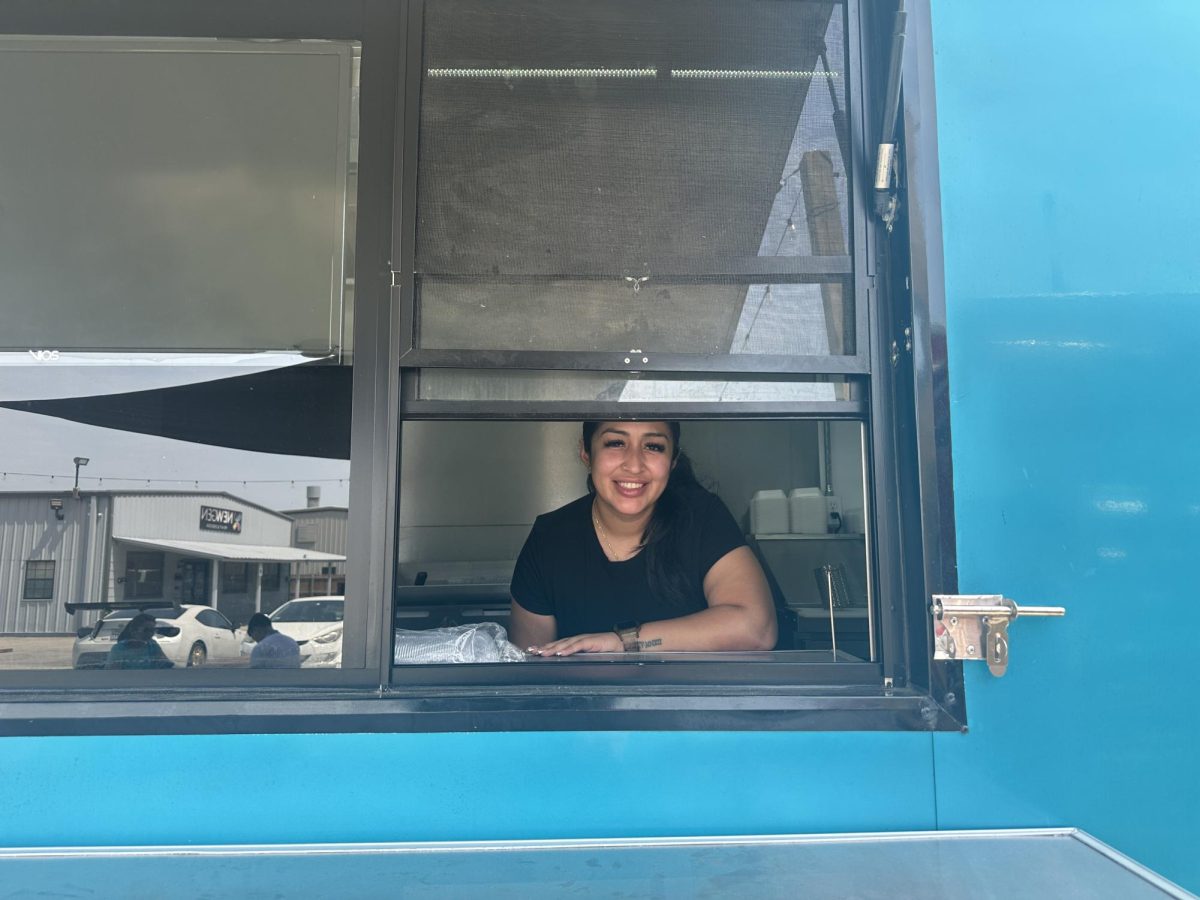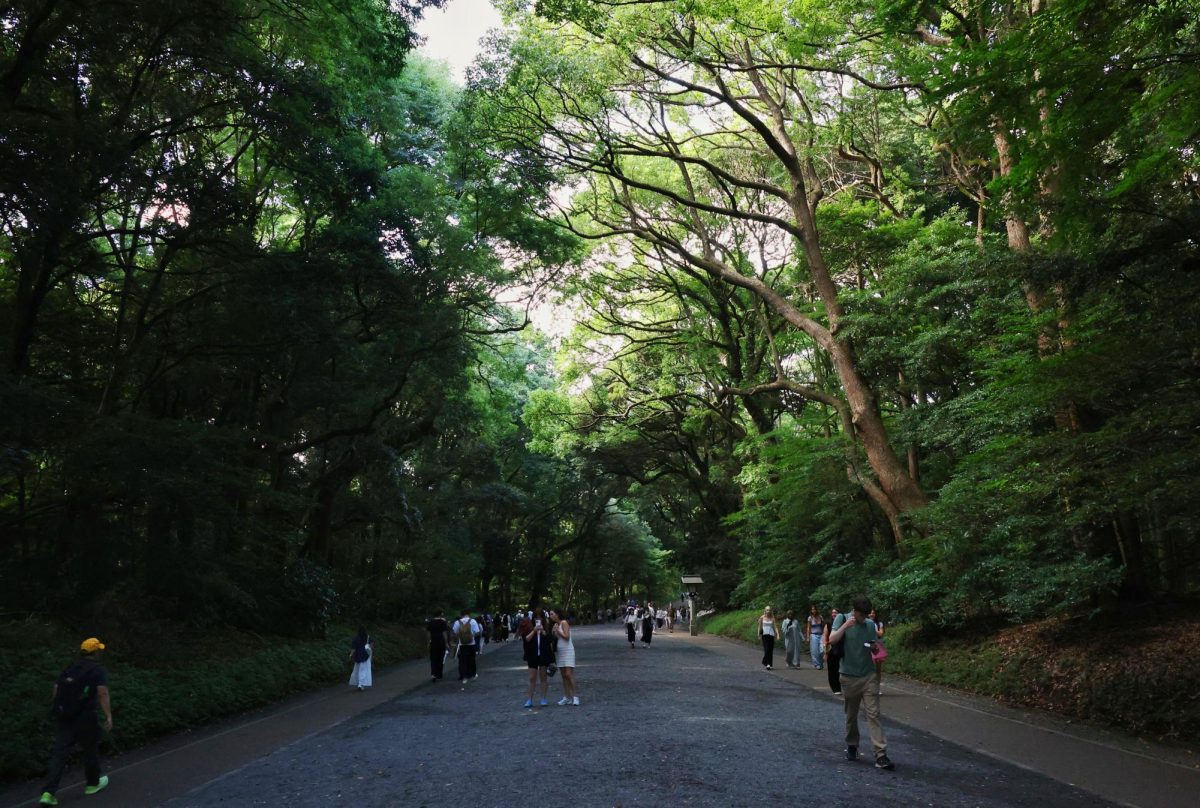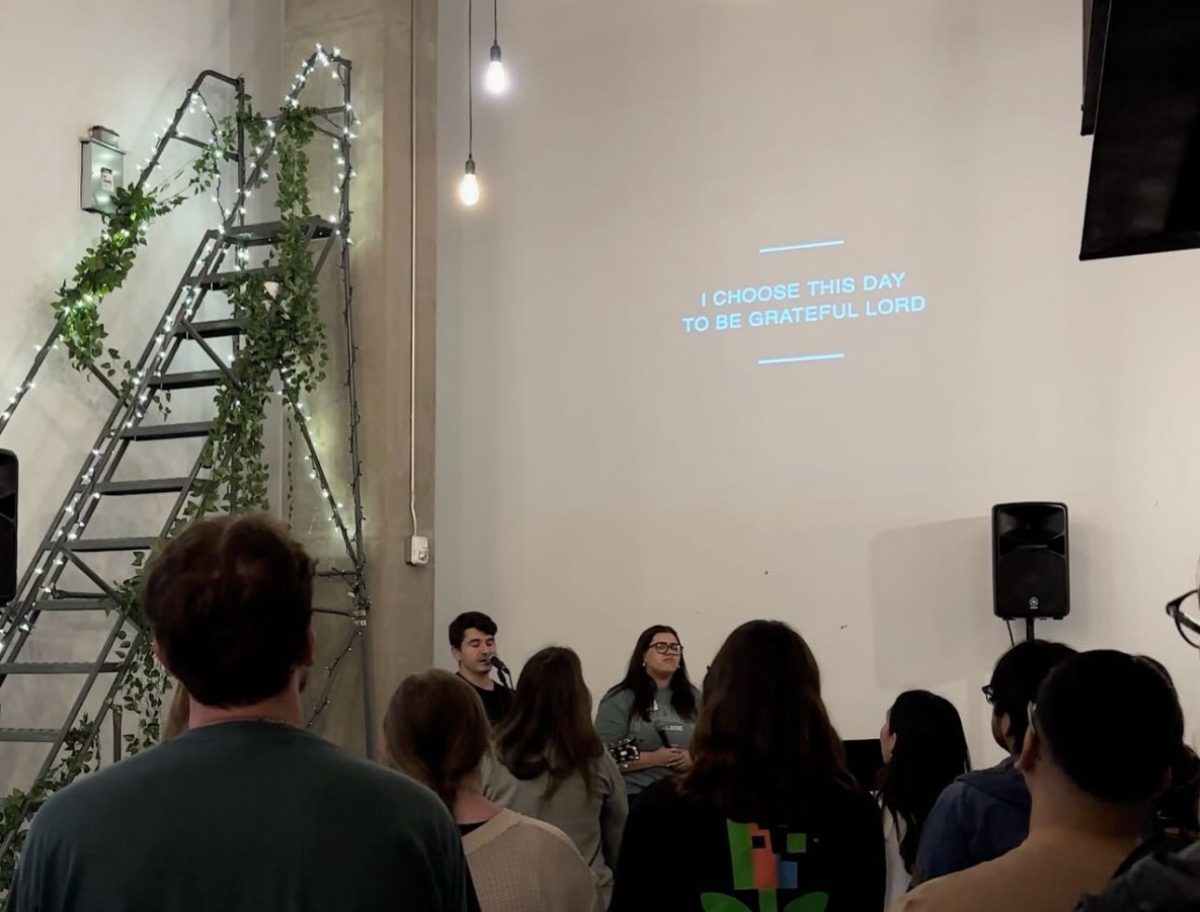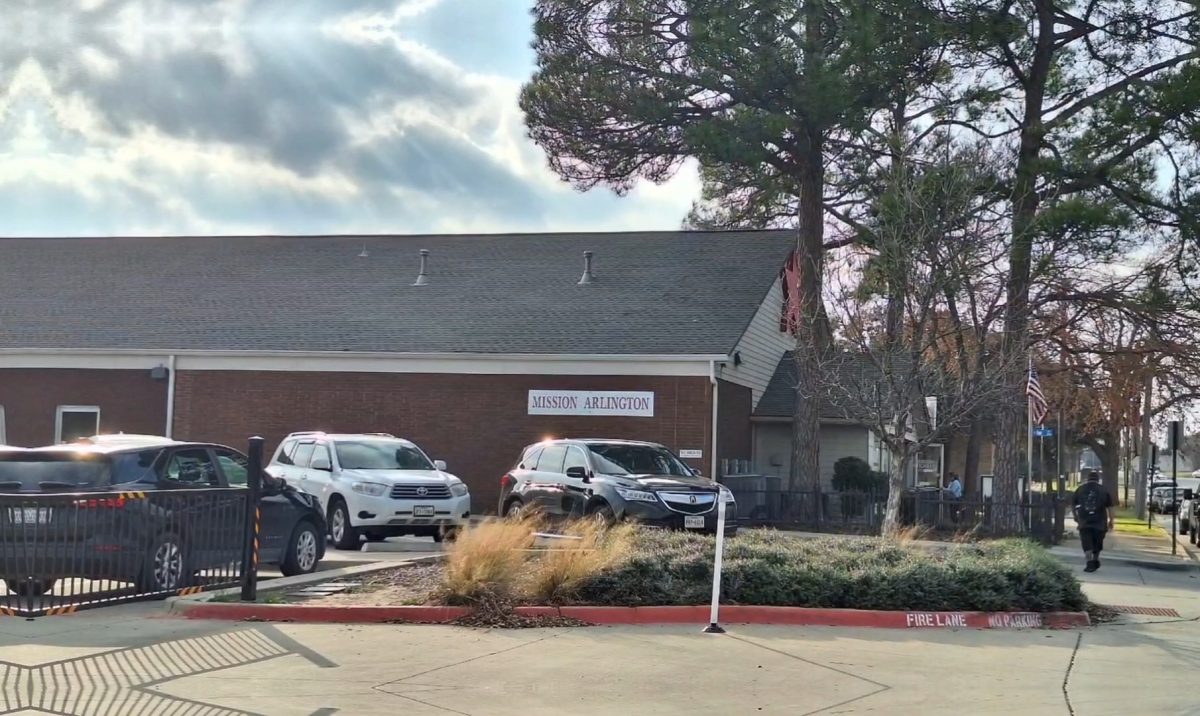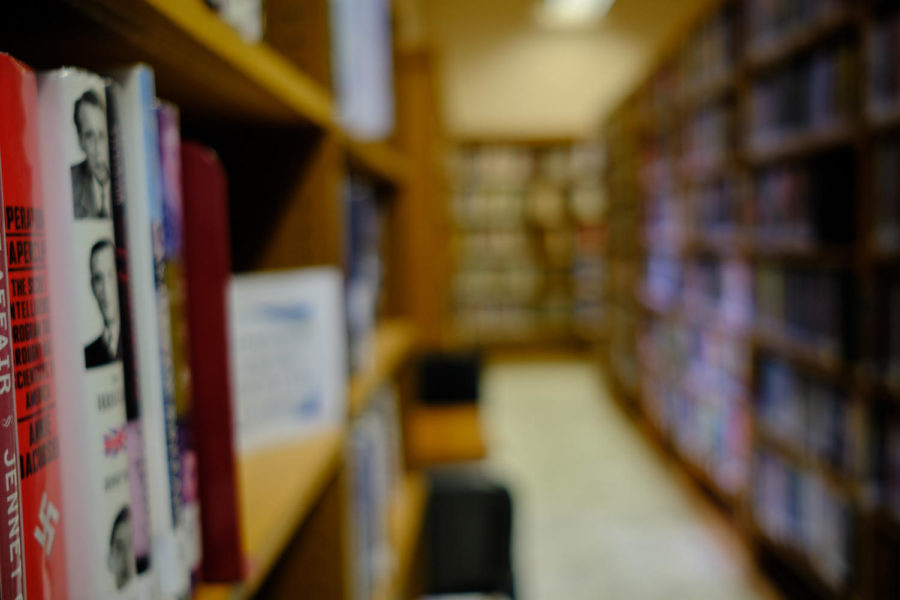Educators share thoughts on national politics’ spillover into local schools
A history book wearing a swastika on its sleeve sits in the corner of Sims Library in Waxahachie, Texas, on Oct. 18.
November 29, 2022
ARLINGTON, Texas – In wake of national criticism of the state’s education system, some Texas school leaders have strayed away from finding solutions through government regulation, instead focusing on solving controversies from the classrooms themselves.
In the past two years, school board meetings across Texas have become increasingly heated, according to The Texas Tribune. Polarizing debates concerning banned books across school districts and state laws limiting how to discuss race in class have pit parents against teachers and administrators against politicians.
Political issues in classrooms distract from teaching, said Kevin Brown, executive director for the Texas Association of School Administrators. The key to solving the state’s education problems lies in the hands of local communities, rather than the capital, Brown said.
“Our country is very divided right now and you’re seeing that play out in the local community,” he said. “Oftentimes, it’s not even related to what the school board does. I think that’s been frustrating for people that are in the trenches.”
Brown said the Texas Association of School Administrators does three main things: hosts workshops for educational leaders, provides services for members and does advocacy work for schools from the capital.
Through advocacy, the association tries to bridge the gap between local communities and elected state educational leaders like the Texas Board of Education. He said they focus on listening to schools and voicing their struggles.
“So that could be related to student academic achievement, policies and procedures that impact the local school districts, school finance, accountability, all kinds of different things in the local community,” Brown said. “Our local school leaders help us develop our priorities for what’s important.”
Lancaster resident Madalyn Gonzalez said she works as a teacher-in-training at an elementary school in Oak Cliff as she studies for her bachelor’s degree in science and education at Texas Tech University.
With the help of a mentor, Gonzalez teaches students fifth-grade English language arts and said she hopes to continue teaching a similar age group after graduating. She said though she’s loved teaching from the beginning, she can’t do exactly what she hoped to do in education.
“I’ve been taught through my teaching program that you just have to do what’s expected from the state and you just have to do everything that they want,” she said. “So it’s kind of hard trying to lesson plan when you’re so passionate about teaching and you have to be held to these standards that the education system has.”
Early in Brown’s career, he worked as a teacher and a principal of a local school. He said when he was in those roles, partisan issues rarely came up. He focused on individual students and programs, solving problems relationally. With this strategy, he said he’s seen liberals and conservatives come together in a productive way.
“What we’ve gone through in the last two years feels very different than what we have in the last 30 years in my career,” Brown said. “And that’s troubling.”
Political divisions that occur at the national level have dripped down to the local level, so local communities have had to deal with issues that should be reserved for the national level, he said. This makes it difficult to teach a classroom and lead a campus.
“In the past, I feel like students and their school boards have been able to find a general consciousness for a community around what’s best for students,” he said. ”It feels like in some communities they’re having a dialogue about national issues that don’t even impact the students.”
When teachers are focused on dealing with adult issues at the state and federal level, they become disillusioned, Brown said. He said his approach to advocacy isn’t partisan or highly charged, but focused on community service for everybody and improving the lives of children.
The U.S. school system is unequal and the politicization of education is not helpful, said Christopher Chambers-Ju, professor of political science at the University of Texas of Arlington. Political identities and partisan priorities are a distraction in the classroom.
The U.S. is polarized, Chambers-Ju said. This polarization is exacerbated by social media, the conservative media ecosystem and the growing divide between urban and rural communities.
“So conflict in education is a reflection of broader political divides that have been in place for some time,” he said.
Brown said the biggest issue he sees in schools today is that people are losing the ability to have conversations about difficult topics and work through situations together.
“Because a lot of times what people want are the same thing,” he said. “They want children to be successful and the state of Texas to be a great state with a bright future.”
Social media is also an issue, Brown said. It’s designed to direct people down rabbit holes to extreme versions of their political beliefs
“We’re getting [our information] from very divergent sources, so people can’t even agree on what the facts are. And so not everybody has all the right information,” he said.
People approach issues from very different perspectives, basing their beliefs on contradicting information, Brown said. This makes it difficult to compromise even when people have the same end goal.
“Every educator goes into the profession because they have a sense of mission and want to go out and make a difference in the world,” he said. “They want to help children achieve their dreams, they want to help develop an educated citizenry that preserves our democracy.”
Gonzalez said the amount of formal, state assessments that students have to take is stressful for both children and teachers.
“Teachers are stressed out just trying to meet that goal and trying to help their school reach their goal of students passing,” she said.
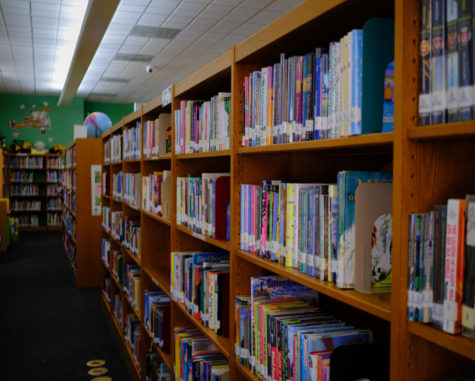
Without so many benchmark assessments, teachers would be able to have more freedom in educating without having to only focus on the next test, Gonzalez said.
The United States has consistently scored low on the Programme for International Student Assessment, the PISA, which internationally measures 15-year-olds’ ability to use their reading, mathematics and science knowledge and skills to meet real-life challenges, according to the Organization for Economic Cooperation and Development’s website.
Chambers-Ju said the country’s struggle on the PISA and in education is probably due to deeper, structural problems in politics.
Similar historical controversies in other countries’ education systems are concerning for the United States, he said. In the early 20th century, Colombia saw conflict over the separation of church and state and teaching science. In the 1980s, populist leaders in Nicaragua censored books and curricula in schools.
“I think the takeaway, which is disconcerting, is that in all of these cases either democracy was under assault or political violence had occurred or was on the horizon,” Chambers-Ju said.
In a very diverse state where no two communities are the same, the only way to solve issues is to civilly talk them through, focusing on the needs of the children rather than an overall ideology, Brown said.
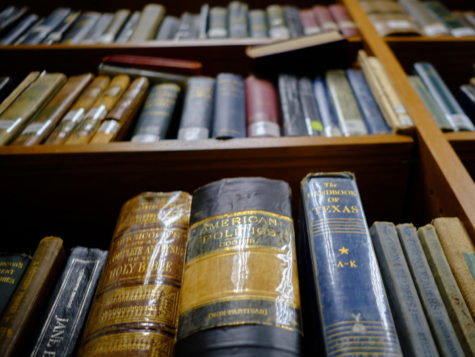
While there’s a role for the state and federal government, they won’t produce innovation, Brown said. Innovation happens from the ground up in local communities and cannot take root in an over-regulated environment. He said his association believes that local communities are best at solving problems and that, historically, they’ve been proven right.
With so many different perspectives in the world, especially in politics, students should be able to know and learn both sides of everything, Gonzalez said.
“That’s how they’re able to learn,” she said. “They’re able to start thinking about what type of person that they are. School influences children all the time and, throughout their whole life, education influences anybody. So I feel like, to a certain extent, certain things should talked about and planned into lessons.”

